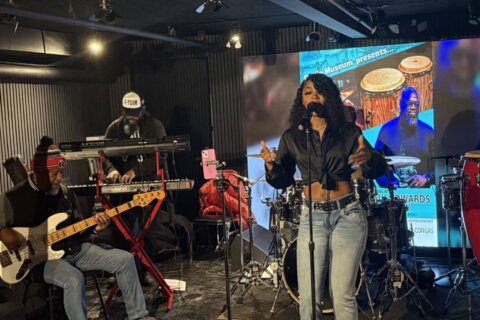The D.C. Attorney General’s office and attorneys general in 13 other states have filed lawsuits against TikTok, with D.C.’s complaint calling the social media app a “profound risk” to the mental health and well-being of kids.
The 74-page lawsuit filed in D.C. Superior Court says the social media app manipulates children, while misleading users about the safety of the platform. The other 13 cases were also filed in state courts around the country, by both Democratic and Republican officeholders.
“We don’t believe TikTok has been honest and straightforward with the public — with parents, with children — about the risks associated with its product, the risk it knows its algorithm presents,” said D.C. Attorney General Brian Schwalb in an interview with WTOP.
“And by not being straight up and honest with the consumer, that also is a violation of our consumer protection laws. The lawsuit also claims that TikTok knows full well that its age verification tools aren’t effective, just as user and parental controls to limit unhealthy usage of the app also fall short.”
A statement from TikTok said, in part, that it strongly disagrees “with these claims, many of which we believe to be inaccurate and misleading.”
“TikTok knows that it’s peddling digital nicotine, that it’s addictive and dangerous and had TikTok really wanted to make its product and platform safe, it could have,” Schwalb said. “It put me, my colleagues, in a no-win position, where we were left with the only choice available to us, which was to bring these state law consumer protection claims against it.”
The complaint from D.C. also takes aim at TikTok LIVE, and the way it allows users to transfer money to others.
“TikTok tailors this feature for children. It uses cartoons and emojis and other graphic design to make kids think that they’re engaged in play things, when in fact, those emojis can be converted into dollars,” Schwalb said.
He said apps, such as Venmo or PayPal, which are licensed, take steps to prevent fraud and money laundering in ways that TikTok won’t.
“When you couple a money transmission business — TikTok Coins — with TikTok LIVE, it allows for behavior like real-time striptease shows, resulting in young people being exploited in real time for money.”
In all, the D.C. lawsuit contains four accusations that TikTok violates the Consumer Protection Procedures Act and a single count of violating the Money Transmission Statute.
In the statement issued to WTOP, a TikTok spokesperson defended the safeguards put in place.
It goes on to say the app has “endeavored to work with the Attorneys General for over two years, and it is incredibly disappointing they have taken this step rather than work with us on constructive solutions to industrywide challenges.”
Schwalb said those efforts have not been made in good faith.
“What I’m disappointed about is the fact is that we spent a couple of years engaging with TikTok to no avail,” he said. “TikTok knows full well what our concerns are. TikTok knows full well how concerned we are about the mental health of young people in our communities.”
On top of the state lawsuits, the U.S. government is suing TikTok over child privacy concerns. A law signed by the president also requires TikTok’s parent company, Chinese-owned ByteDance, to divest the app or see it banned in the U.S. over national security concerns.
Last year the District filed a similar lawsuit against Meta, the parent company of Facebook and Instagram, and made similar complaints to those lobbied against TikTok.
Get breaking news and daily headlines delivered to your email inbox by signing up here.
© 2024 WTOP. All Rights Reserved. This website is not intended for users located within the European Economic Area.








